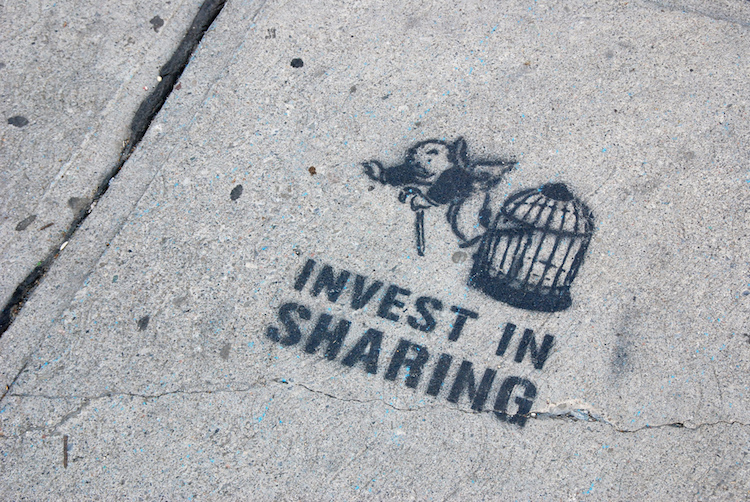
As a millennial myself, it’s easy to understand why the sharing economy is booming.
From cars and houses to clothing and equipment, anything that can be mutually exchanged is game. Sharers believe that this way of life is not only financially sustainable but also environmentally friendly.
The premise behind the sharing economy is putting to use objects that would otherwise go to waste or be minimally used. Rather than spending all our hard-earned cash on an unnecessary Harley Davidson, for example, the internet gives us access to local bike owners who are willing to share bikes, often in exchange for a small fee or another object or service.
In essence, the sharing economy is a modernization of the bartering system, which has been part of human history for about 3,000 years. Back in the day, people exchanged services and goods for other services and goods rather than cash. Nowadays, bartering is making a major a comeback. But this time around, the system has vamped up their techniques through increased sophistication and the use modern trading vehicles—namely, the Internet.
We know by now that the sharing economy barters things such as cars and spare rooms and rents them out to others. But the popularity of such a system is what makes collaborative consumption truly revolutionary. 68 percent of people globally indicated that they would happily share or rent out items and two thirds would use others’ services or products.
We all get that the sharing economy is extremely trendy, but the question still stands: Is the sharing economy also a tool for environmental transformation?
Damien Demailly of the Paris-based Institute for Sustainable Development and International Relations (IDDRI) conducted this research. They found that economic and environmental potential is substantial. They reason that sharing helps us reduce consumption and keep usable goods out of landfills.
The planet gives the sharing economy its stamp of approval as it looks to reduce the waste created by underutilized assets and a reduction of carbon emissions.
Underutilized assets
Cars, bikes and ride sharing, such as Zipcar, are changing the way we think about transportation and ownership. As bizarre as this may appear, in an age of hyperconsumption, our things have a greater added value and are lowering carbon emissions around the world. We no longer need one of everything because we have the option to borrow instead of buying a new one.
The best part of this is, there’s no need to worry about paying for something that may be used only once, which is detrimental to the environment due to mass production and consumption. Moreover, sharing not only creates powerful communities but opens doors that were previously closed to budget-tight individuals.
The sharing economy enables a more efficient use of underutilized belongings such as a car sitting in a driveway or an extra room in a home. This system helps the world to become more green.
Reduces carbon emissions
Let’s take a look at both cars and rooms used within the sharing economy:
Cars come with a huge carbon footprint, so it only makes sense that car sharing and ride sharing are beneficial to us all. By sharing vehicles, the number of cars on the roads are cut down immensely. Furthermore, according to the 2011 study from the University of California Transportation Center, “every car sharing vehicle removes between 9 and 13 other vehicles from the road,” reducing individual emissions. Besides the eco-benefits, with car sharing you don’t have to worry about the financial stresses that come when owning a vehicle. And, it’s way more fun to belt out your favorite tunes whilst stuck in traffic in a duet rather than a solo!
Also consider Airbnb, one of the most popular sharing economy startups. Its growth could result in fewer hotels being built, saving construction materials and carbon emissions. By renting out a private room in a home instead of a hotel, we can fill a bed that would otherwise be temporarily vacant. Moreover, the services that come with a hotel such as extra washing and electricity usage are lessened.
Though sharing our stuff may not necessarily be the answer to global warming, it’s certainly a step in the right direction. Because the businesses within the sharing economy limit waste and encourage people to give away possessions they no longer need, our things are put to better use. While the sharing economy has it’s contesters, it shouldn’t deter one from embracing it!
~
Author: Amiad Soto
Editor: Caroline Beaton
Image: Flickr






Read 0 comments and reply